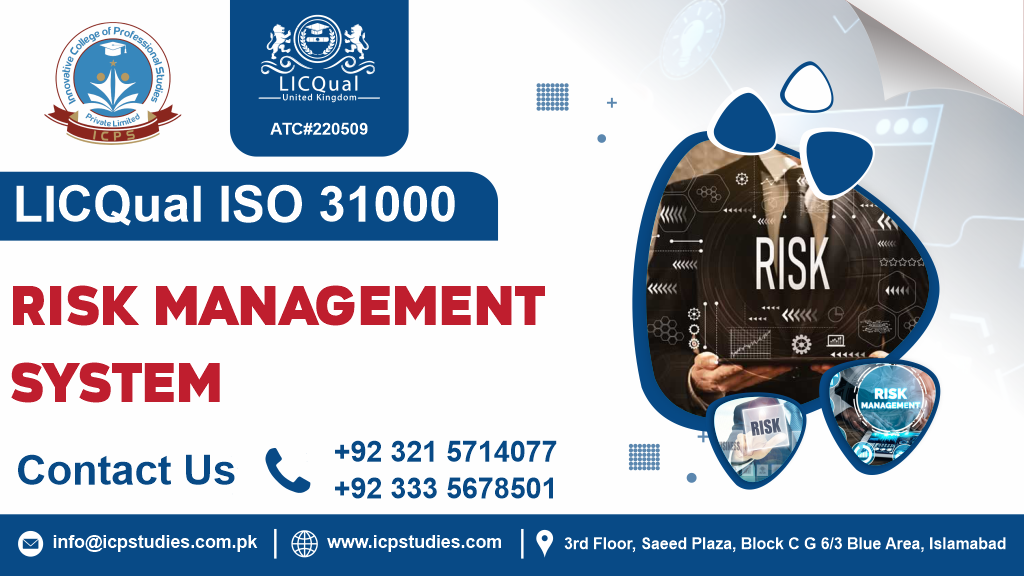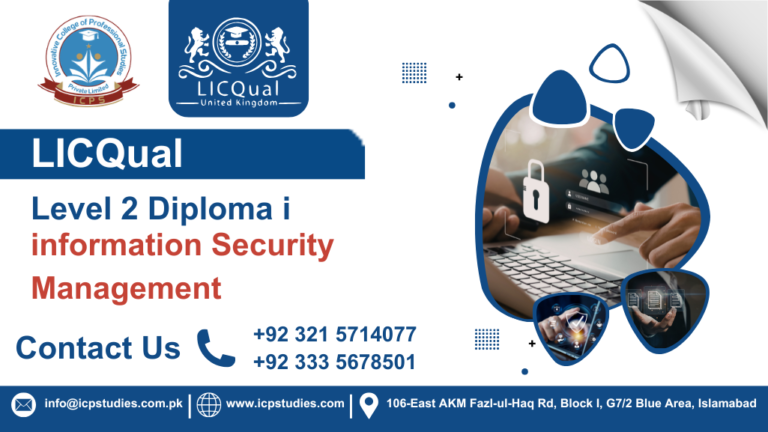In an increasingly volatile and complex business environment, effective risk management is crucial for organizational success. The ISO 31000 Risk Management System Lead Implementer Course offers professionals a comprehensive pathway to mastering risk management principles and leading their organizations through the implementation of ISO 31000, the internationally recognized standard for risk management. This course equips participants with the knowledge and skills necessary to identify, assess, and manage risks effectively, ensuring resilience and sustainability.
ISO 31000 is a global standard that provides guidelines and principles for designing, implementing, and maintaining a risk management framework and process. Unlike sector-specific standards, ISO 31000 is applicable to any organization regardless of size, industry, or sector. It aims to create a structured approach to risk management that enhances decision-making and improves organizational performance.
In today’s unpredictable business landscape, the ability to effectively manage risk is a key determinant of organizational success. The ISO 31000 Risk Management System Lead Implementer Course offers a comprehensive education in risk management principles, practical skills, and leadership abilities essential for guiding organizations through the complexities of risk. By mastering ISO 31000, participants can drive more informed decision-making, enhance organizational resilience, and advance their careers in the field of risk management.
All About ISO 31000 Risk Management System Lead Implementer
Course Overview
The ISO 31000 Risk Management System Lead Implementer is a specialized training program designed to equip professionals with the skills and knowledge necessary to effectively implement and manage a risk management system in accordance with the ISO 31000 standard. ISO 31000 is an international standard that provides guidelines and principles for risk management, applicable to any organization regardless of its size or sector.
ISO 31000 Risk Management System Lead Implementer course provides essential training for professionals tasked with leading the implementation of risk management systems. By mastering ISO 31000, participants can effectively manage risks, support organizational objectives, and enhance overall performance.
Study Units
- Introduction to ISO 31000:
- Risk Management Principles
- Risk Management Framework
- Risk Identification:
- Risk Assessment
- Risk Treatment
- Risk Monitoring and Review
- Risk Communication
- Integration with Management Systems
- Educational Background: A degree or equivalent qualification in business, finance, risk management, or a related field.
- Professional Experience: Relevant work experience in risk management, project management, or related fields, usually ranging from three to five years.
- Familiarity with ISO Standards: Basic understanding of ISO 31000 and other risk management frameworks is beneficial.
- Knowledge of Risk Management Principles: Awareness of risk assessment techniques, methodologies, and best practices.
- Leadership Skills: Ability to lead teams and facilitate the implementation of risk management processes within an organization.
- Communication Skills: Strong verbal and written communication skills for effective documentation and engagement with stakeholders.
- Analytical Skills: Capacity to analyze risks and develop strategies for effective management.
- Commitment to Learning: Willingness to engage with course materials and participate in practical assessments.
As specific requirements may vary by provider, it’s advisable to check the details of the course you are interested in.
- Risk Managers: Professionals responsible for implementing and overseeing risk management practices within organizations.
- Internal Auditors: Individuals conducting audits of risk management processes and systems.
- Compliance Officers: Those ensuring adherence to risk management regulations and standards.
- Project Managers: Professionals who need to integrate risk management into their project management processes.
- Senior Management: Executives looking to understand and support organizational risk management strategies.
- Consultants: Advisors providing expertise on risk management frameworks and best practices.
- Quality Assurance Personnel: Individuals focused on integrating risk management into quality assurance processes.
Overall, the course is suitable for anyone involved in the development, implementation, or management of risk management systems within their organizations.
Learning Outcome
1. Introduction to ISO 31000
Learning Outcomes:
- Define the ISO 31000 standard and its relevance to risk management.
- Explain the key concepts and principles outlined in ISO 31000.
- Describe how ISO 31000 supports effective risk management across various types of organizations.
- Identify the benefits and objectives of implementing ISO 31000 in organizational settings.
2. Risk Management Principles
Learning Outcomes:
- Understand the fundamental principles of risk management as defined by ISO 31000.
- Apply these principles to guide the development and implementation of a risk management system.
- Analyze how risk management principles contribute to achieving organizational objectives and enhancing resilience.
- Assess the alignment of organizational practices with the core principles of risk management.
3. Risk Management Framework
Learning Outcomes:
- Design a risk management framework in accordance with ISO 31000 guidelines.
- Implement key components of the risk management framework, including governance structures, roles, and responsibilities.
- Integrate the risk management framework into organizational processes and strategic planning.
- Evaluate the effectiveness and appropriateness of the risk management framework in supporting organizational goals.
4. Risk Identification
Learning Outcomes:
- Utilize various techniques for identifying potential risks, including brainstorming, checklists, and SWOT analysis.
- Categorize and document identified risks to facilitate further analysis and treatment.
- Identify both internal and external sources of risk that could impact organizational objectives.
- Communicate identified risks effectively to stakeholders for further assessment and action.
5. Risk Assessment
Learning Outcomes:
- Apply qualitative and quantitative methods for assessing risks, including risk matrices and probability-impact assessments.
- Evaluate the likelihood and impact of identified risks to prioritize them appropriately.
- Analyze risk scenarios to understand their potential effects on organizational objectives.
- Document and report risk assessment results to support risk treatment and management decisions.
6. Risk Treatment
Learning Outcomes:
- Develop risk treatment strategies and options, including risk avoidance, reduction, sharing, or acceptance.
- Create detailed risk treatment plans with specific actions, responsibilities, and timelines.
- Implement risk treatment plans effectively and monitor their progress.
- Review and adjust risk treatment strategies based on performance data and changing risk conditions.
7. Risk Monitoring and Review
Learning Outcomes:
- Establish processes for ongoing monitoring and review of risk management activities.
- Monitor the effectiveness of risk management actions and controls.
- Review the risk management system regularly to ensure it remains effective and relevant.
- Adjust risk management practices based on review findings and emerging risks.
8. Risk Communication
Learning Outcomes:
- Develop effective communication strategies for conveying risk management information to stakeholders.
- Communicate risk management policies, procedures, and outcomes clearly and transparently.
- Engage stakeholders in risk management activities to promote a risk-aware culture.
- Address stakeholder concerns and feedback to improve risk management practices.
9. Integration with Management Systems
Learning Outcomes:
- Understand how to integrate risk management with other management systems (e.g., quality, environmental, health and safety).
- Develop strategies for aligning risk management processes with existing management frameworks.
- Implement integrated risk management practices to enhance overall organizational performance.
- Evaluate the effectiveness of integrated management systems and their impact on organizational objectives.
These learning outcomes are designed to ensure that participants not only understand the theoretical aspects of ISO 31000 but also acquire practical skills to implement and manage an effective risk management system within their organizations.
FAQs about ISO 31000 Risk Management System Lead Implementer







